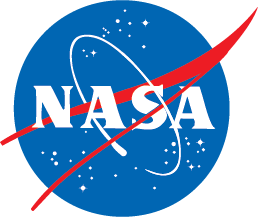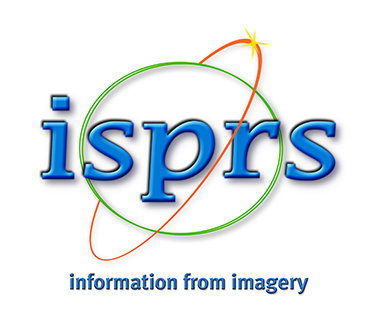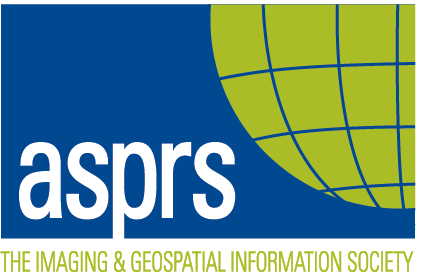
Workshop Information
ASPRS will hold pre-conference workshops at the Symposium all day on Monday, November 17th and in the morning on Tuesday, November 18th.
NEW this Year...Any one registered to attend a full-day workshop (7:45 am - 5:15 pm; 8 hours) will receive a complimentary lunch during the workshop. Lunch tickets will be included with attendee registration packets onsite.
Please note: Fees to attend any workshop offered at the Symposium are in addition to the conference fees. Workshops are not included in any Symposium registration. Workshop fees are listed below.
Workshop Descriptions
- WS#1 - Advanced Hyperspectral Sensing of the Terrestrial Environment
- WS#2 - Using Open Source Tools to Build Web Maps for the Federal Government
- WS#3 - International Charter Space and Major Disasters Overview and a Focus on Project Manager Training
- WS#5 - Extended Multispectral Satellite Remote Sensing in the VNIR and SWIR
- WS#6 - Introduction to Unmanned Aerial System (UAS) Operations
- WS#7 - Making Movies Out of Landsat Images: A Primer in Harmonic Regression and Related Multitemporal Algorithms Used with Landsat Stacks
- Workshop Fees
WS#1 - Advanced Hyperspectral Sensing of the Terrestrial Environment
Monday, November 17, 2014
7:45 am until 12:15 pm
Instructor(s): Dean Riley, Aerospace Corp; Booze Allen Hamilton
ADVANCED
Hyperspectral sensing has created a wealth of opportunity to understand our changing world. It is now incumbent to focus on applications and best methods to derive true productivity. The instructors will share their deep knowledge on important economic themes of the terrestrial environment domestically and internationally. The issues of vegetation, croplands, geological and mineral exploration, and coastal/wetland applications hold great import in our growing and increasingly commodity driven world. These applications derive needed information and power decision-making through current paradigms of sustainability, Food and Water Security, nation building through resource management, coastal and marine spatial planning, and so forth. Attendees should have some knowledge and bring their own applications questions for attention during and at the end of the Workshop.
WS#2 - Using Open Source Tools to Build Web Maps for the Federal Government
Monday, November 17, 2014
7:45 am until 5:15 pm
Instructor(s): The NPMap team: Nate Irwin, NPMap Lead; Mamata Akella, NPMap Cartographer; Jim McAndrew, NPMap Developer; Katrina Engelsted, NPMap Developer
INTERMEDIATE
This workshop will walk participants through the open source toolset the NPMap team uses to build interactive maps for the National Park Service. Members of our team will demonstrate how we build maps with a focus on usability, design, accessibility, and performance. We will start with the basics, and will then dive into using text editors, QGIS, Github, CartoDB, and TileMill through group activities.
The goal for this workshop is to cater to GIS professionals who are interested in using open source tools to create engaging web maps.
WS#3 - International Charter Space and Major Disasters Overview and a Focus on Project Manager Training
Monday, November 17, 2014
7:45 am until 5:15 pm
Instructor: Brenda Jones, U.S. Geological Survey
INTRODUCTORY
Space agencies and other partners are working together to expand the use of satellite data and derived information to support disaster response. They are evaluating user needs and matching them with space technologies, as well as expanding international access to space assets via the International Charter ‘Space and Major Disasters’ (“Charter”).
Satellites have a uniquely valuable vantage point to monitor a broad range of disasters, including tropical storms, floods, wildfires volcanoes, earthquakes, and tsunamis. One or more land remote sensing satellites can oftentimes capture conditions on the land shortly after a disaster occurs. By comparing to pre-existing conditions, these data can be used to create maps and provide actionable information concerning hazard impacts and identification of damaged areas.
A key system that provides rapid access to crisis data is the International Charter Space and Major Disasters. Through the Charter, 15 space agencies around the world deliver space-based data to aid civil protection and humanitarian aid organizations responding to natural and man-made disasters. Since 2000, the Charter has been activated for nearly 500 major disasters in more than 110 countries.
In order to enable more widespread use of the International Charter, the Charter members have hosted Project Manager training classes. These classes provide participants with background on the Charter and its assets, and also provide instruction on how to interact with the Charter agencies during disaster activations. There have been nearly 200 Project Managers trained over the past several years. These Project Managers are able to provide support to local, national, and international agencies during disaster response activities by being able to coordinate access to Charter satellites and imagery.
This eight hour short course will provide an introductory overview of the International Charter Space and Major Disasters with an intermediate focus on the role of the Project Manager. It will provide information on the roles and functions of the Project Manager (PM), the interactions between the PM and other Charter functions, partner agencies and their assets, and the Charter tools that are used during an activation. This is a newly developed workshop, but is based on the 2-3 day training class provided for new PMs.
1. Welcome and Introductions
2. Charter Functions and Interfaces
3. Roles and Functions of PM
4. Interaction between the PM, AU, ES and End User
5. FTP Site Protocol
6. Useful Addresses and Phone Numbers
7. Charter FAQ
8. PM Experiences from Previous Activations
9. Project Manager Welcome Letter
10. Project Manager Report
11. Partner agencies and their assets:
12. Charter tools
13. Exercise/Mock Activation
WS#5 - Extended Multispectral Satellite Remote Sensing in the VNIR and SWIR
Tuesday, November 18, 2014
7:45 am - 12:15 pm
Instructor: Dr. William Farrand and Rachana Ravi
An introductory course covering topics such as the background: the science of reflectance spectroscopy, Radiometry, The role of the atmosphere, Multispectral Data Collection, Brief history of multispectral and hyperspectral systems, Satellite Systems, Airborne Hyperspectral Systems, Data Processing Overview, and an Overview of Applications.
WS#6 - Introduction to Unmanned Aerial System (UAS) Operations
Monday, November 17, 2014
7:45 am until 5:15 pm
Instructor: Dave Prall, Unmanned Experts
INTERMEDIATE
The airborne remote sensing, survey and mapping community are showing increasing interest in Unmanned Aerial System (UAS), and new adopters and technology for metric-quality data production are being reported daily. As UAS become operational the ‘How and Why’ of UAS operations need to be considered as well as the ‘What.’ The "Introduction to UAS Operations" full-day workshop is designed to address this need with practical discussion and a focus on metric-quality UAS surveying and mapping.
The workshop is broken down into 4 sections:
1. Introduction to UAS Concepts
a.Overview; UAS Terminology and Classification; UAS Roles and Mission Sets
b. Concept of Operations; Launch Recovery Systems; Communications
2. Case Studies
a. Metric-quality Applications and Systems Survey
b. Small UAS (SUAS) Photogrammetry, a Disruptive Technology
3. Business Model
a. Business Plan
b. Operational Model
c. Other Considerations
4. Wrap-up
a. Future Technology
b. Art of the Possible
This course assumes that attendees have an intermediate to advanced understanding of airborne operations, and a basic understanding of photogrammetric and remote sensing principles or their equivalents in military intelligence, surveillance, and reconnaissance (ISR) fundamentals.
WS#7 - Making Movies Out of Landsat Images: A Primer in Harmonic Regression and Related Multitemporal Algorithms Used with Landsat Stacks
Tuesday, November 18, 2014
7:45 am until 12:15 pm
Instructor: Evan B. Brooks, Virginia Polytechnic Institute and State University, Department of Forest Resources and Environmental Conservation
INTRODUCTORY
This new half-day workshop will introduce attendees to the use of a harmonic regression algorithm (HR; Brooks et al., 2012) to interpolate daily Landsat-resolution data from relatively sparse multitemporal Landsat imagery. I will also provide the opportunity to develop experience in applying HR and window regression (WR; de Oliveira et al., 2014) to selected subsets of Landsat stacks using the latest code developed in the free, open-source R language. In particular, I will provide attendees with a selection of subset stacks to choose from, walk them through the algorithms step-by-step, and then ask the attendees to apply the algorithms to their chosen subsets to make HR coefficient rasters and movies of daily interpolated images. We will also consider and discuss the benefits and drawbacks of using WR as a preprocessing step to HR, particularly with Landsat 7 ETM+ imagery in the SLC-off era. Once attendees have generated their own satisfactory HR coefficient rasters, we will also explore using these rasters, along with the original subset stack, to run the exponentially weighted moving average change detection algorithm (EWMACD; Brooks et al., 2014) and explore its use. As with HR and WR, I will go through the algorithm step-by-step as we generate on-the-fly change maps. All of the algorithms will be coded in R, relying on the spatial tools (Greenberg, 2014) and raster (Hijmans, 2014) packages. At the end of the workshop, attendees will be given the algorithm scripts for use in their own research.
The material for this workshop is introductory for those new to the R language and HR/WR concepts, with the possibility of moving to intermediate material depending on the progress made during the workshop. The intended audience for this workshop includes graduate students and researchers interested in working with large Landsat stacks, especially for change monitoring and/or interannual studies.
Workshop Fees
| Full Day (WS #) | Advance (until 10/31) |
Regular (11/01-11/21) |
| Member | $250 USD | $275 |
| Non-Member | $325 | $375 |
| Student | $125 | $150 |
| Half Day (WS #) | Advance (until 10/31) |
Regular (11/01-11/21) |
| Member | $180 | $200 |
| Non-Member | $280 | $300 |
| Student | $90 | $100 USD |
Students must provide a valid student ID when they register. Students will be allowed to attend workshops at the reduced price on a space available basis. All student registrations for workshops that are received before October 31, 2014, will be held until that date. If there are spaces available at that time the student will be notified that their registration has been accepted. If a student workshop registration is not accepted, their workshop fee will be refunded in full.
NOTE: Individual workshops are subject to cancellation if the minimum number of required registrations is not received by October 31, 2014.
Workshops are limited to a maximum of 40 attendees per workshop. Popular workshops sell out early and we do NOT keep a waiting list.





